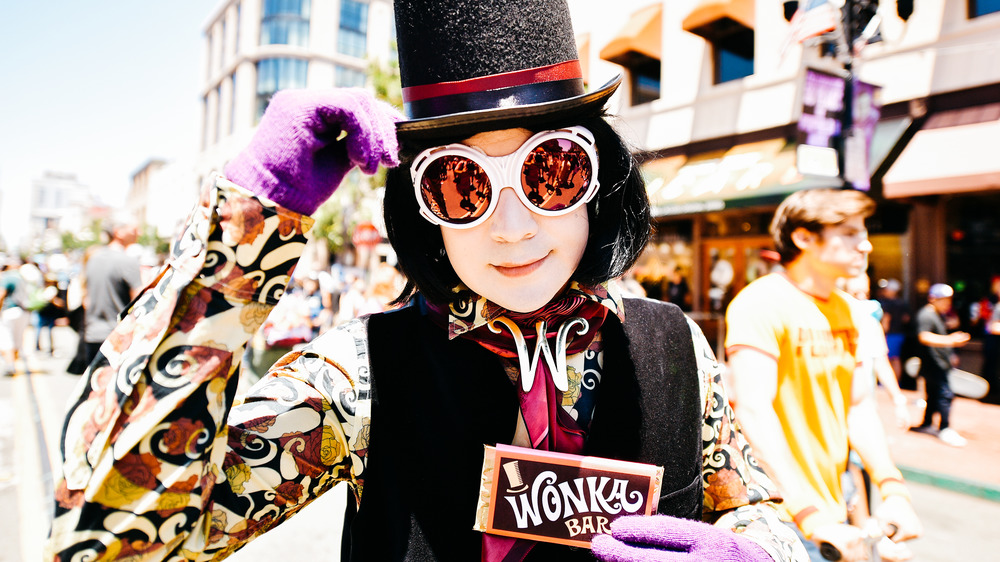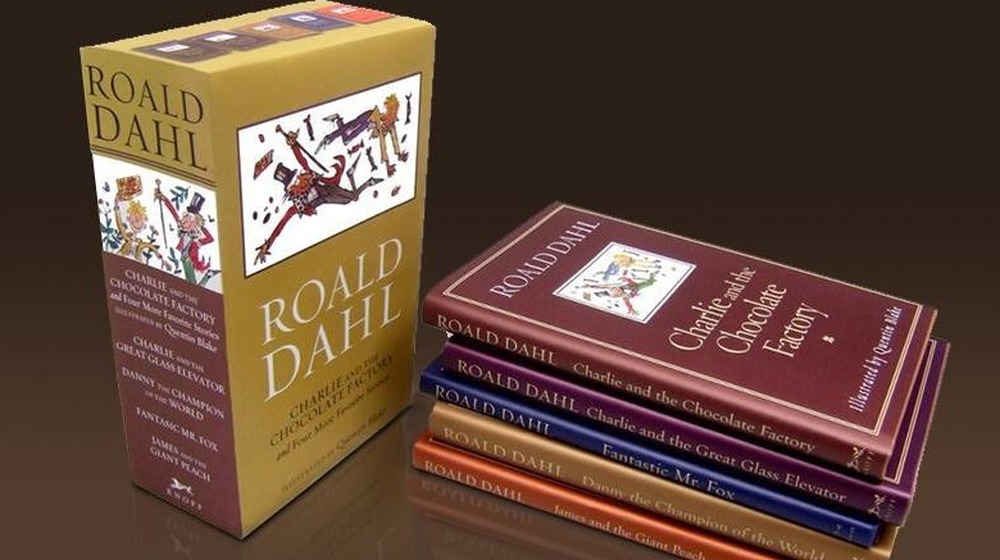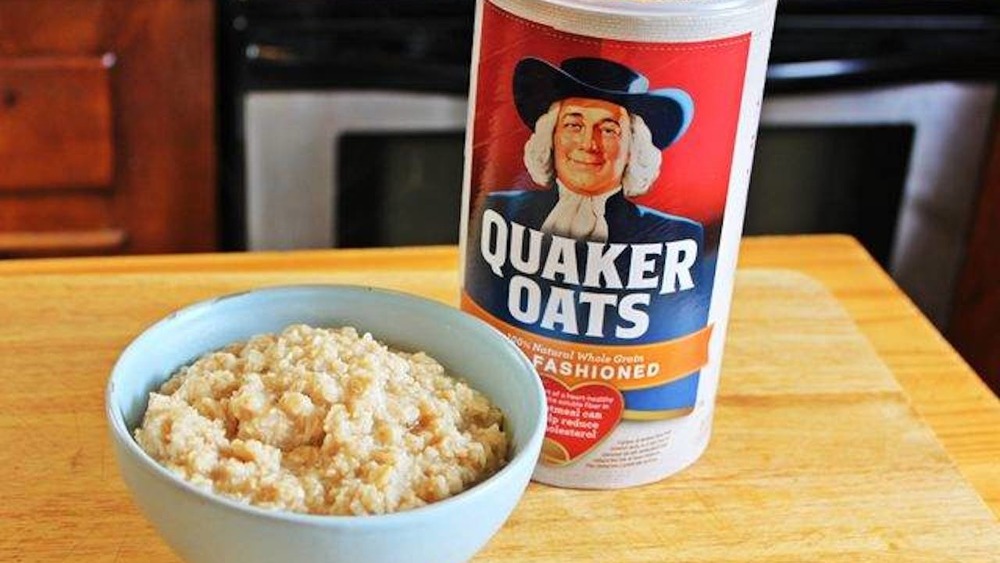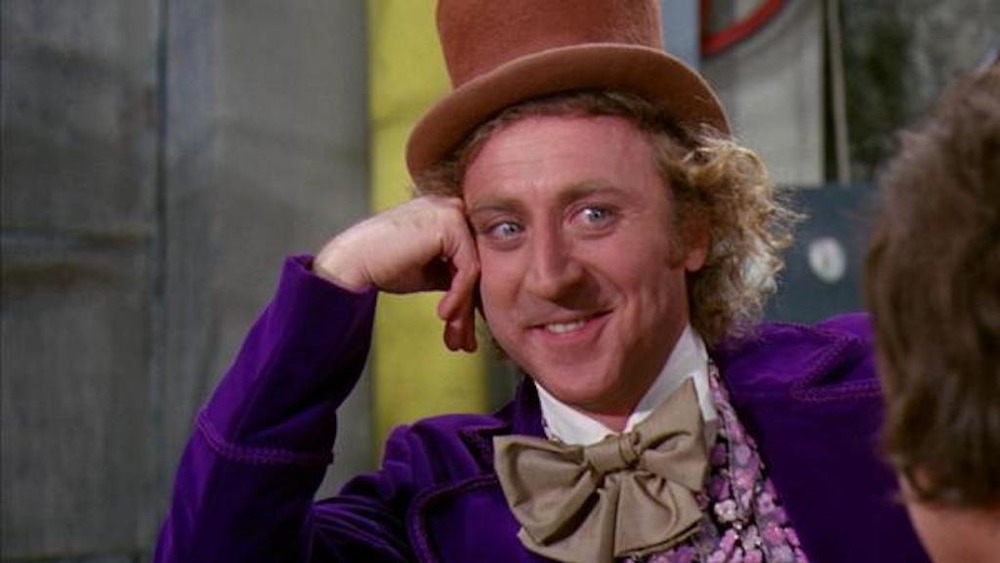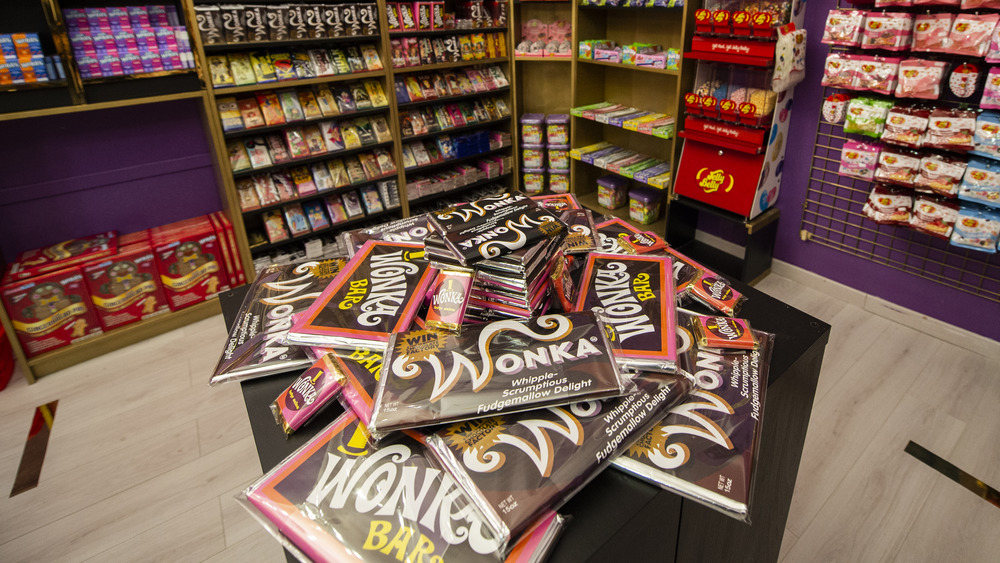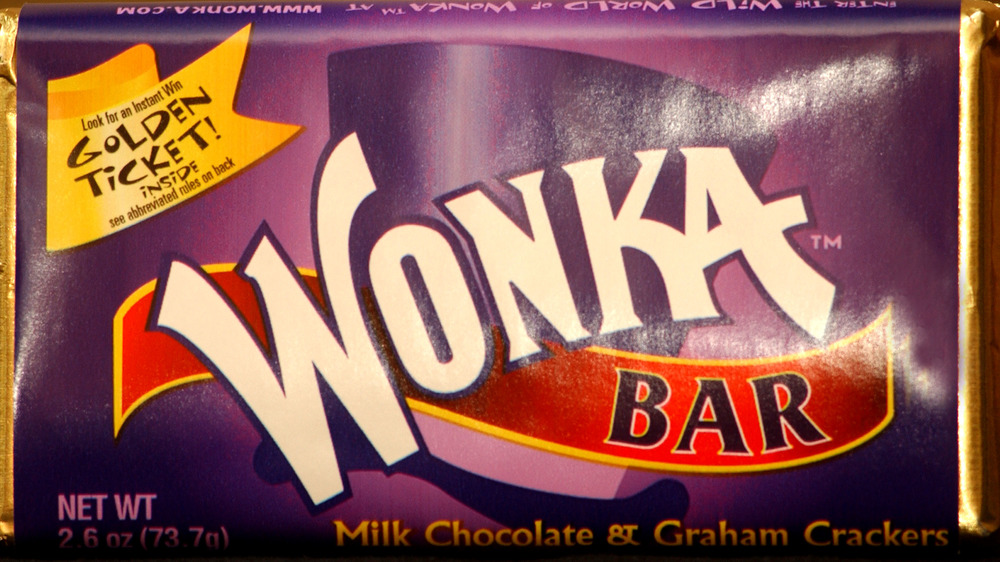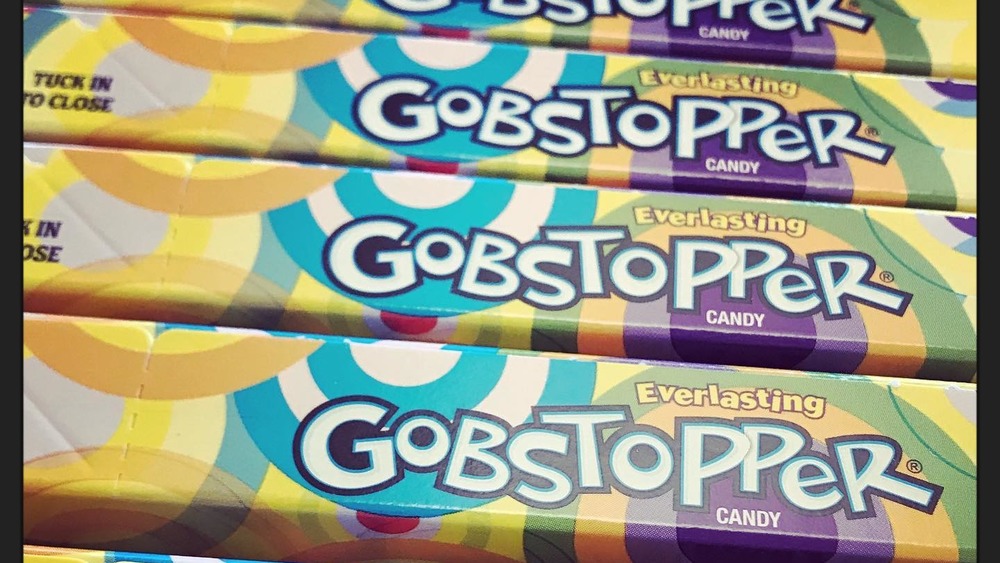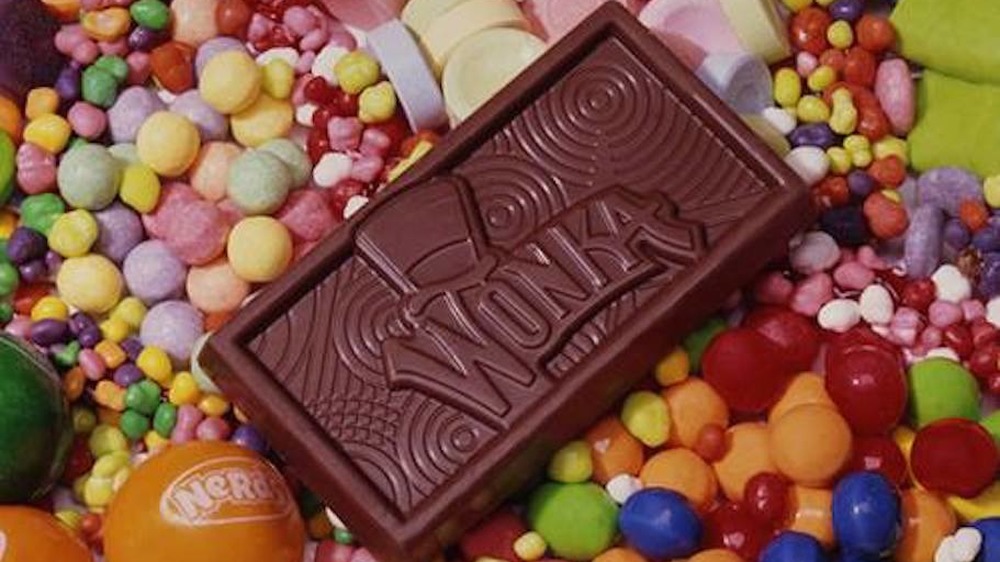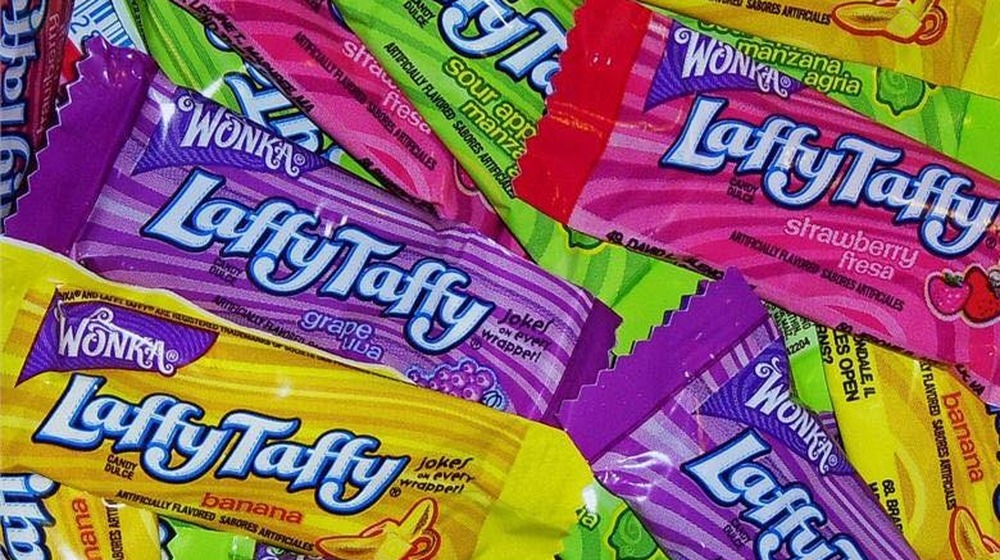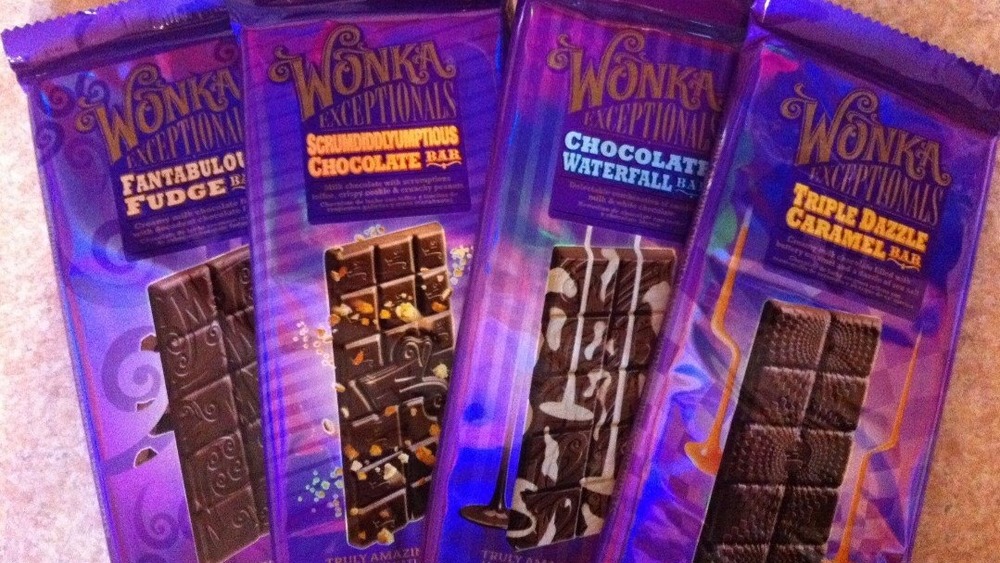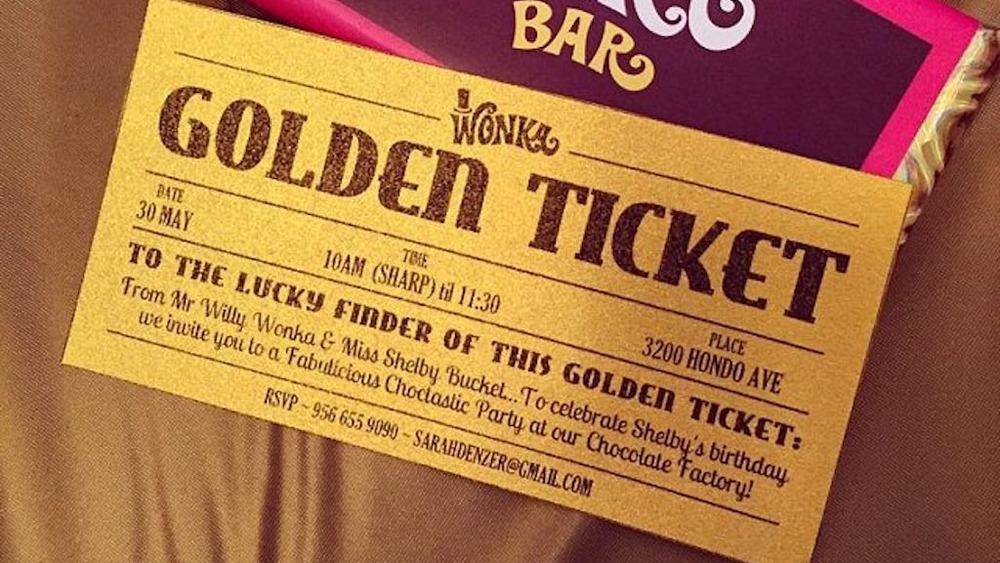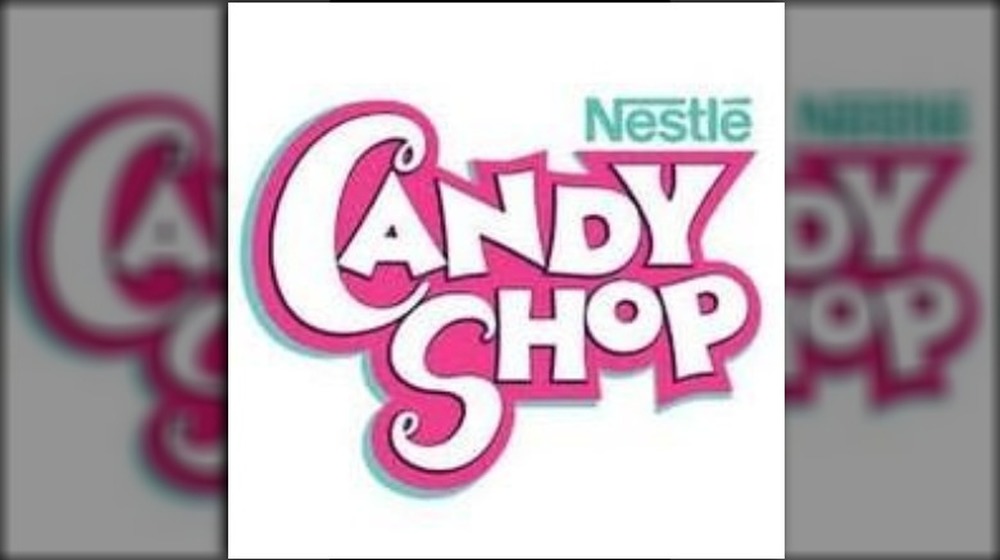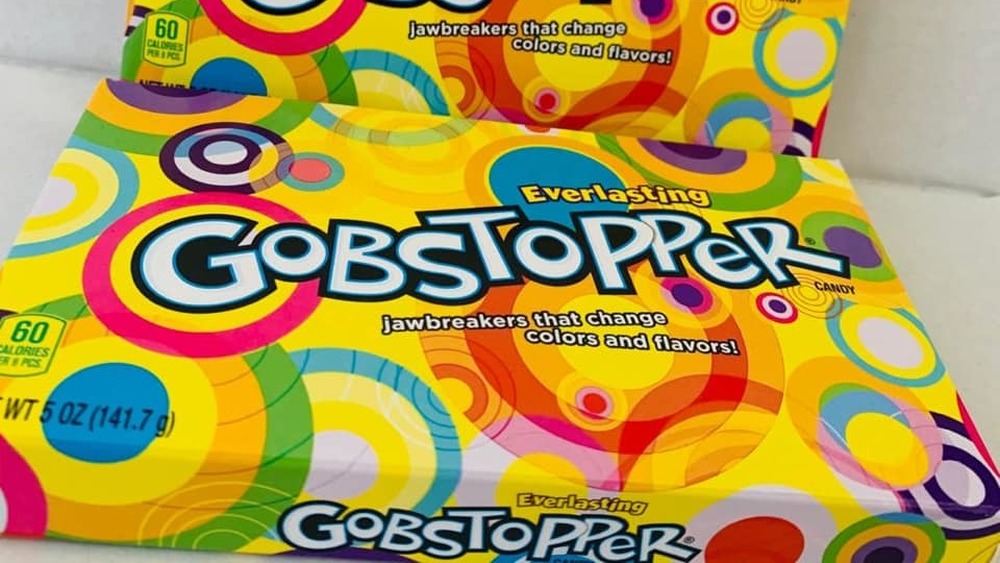The Truth Behind Nestle's Real Willy Wonka Candy Company
Many childhoods were filled with wonder and amazement thanks to the stories of Roald Dahl. We fantasized of a life rich and full of whirlwind adventures, just like those in James and the Giant Peach, and we shivered in fear at the thought of a head-to-head confrontation with Miss Agatha Trunchbull in Matilda. Few stories have had such lasting impact on the masses than the fantastical world of Charlie and the Chocolate Factory. Whether you first encountered the tale in your school library, or saw the original film adaptation as you were flipping through the channels, it undoubtedly played a role in your own coming-of-age story. Who wouldn't dream of jumping into a river made up of hundreds of thousands of gallons of chocolate or getting your hands on an Everlasting Gobstopper?
The amazing minds of Hollywood met the food industry when they had the profitable idea to bring these sweet wishes to life in the form of the Willy Wonka Candy Company. No longer in existence, the history of the real-life candy company is just as fascinating as the eccentric, fictitious man himself. It's all treats and even quite a few tricks, but we promise we won't pull any Slugworth action on you. Let's unwrap the truth behind Nestle's real Willy Wonka Candy Company.
The origins of the Willy Wonka Candy Company began in Roald Dahl's book
"Welcome my friends. Welcome to my chocolate factory." Long before the now beloved movie ever hit the screens, "Wonka Land" was simply a thought in the head of author Roald Dahl. While his life was anything but pure imagination, his work has left an impressive mark on children's literature that is likely to live on for many generations to come. Ironic as it is, Dahl actually shared his birthday with another man synonymous with chocolate: Milton Hershey. It must be kismet.
According to The Guardian, the inspiration behind Dahl's chocolate-fueled factory stems from his childhood. As a young schoolboy in Britain, the chocolate candy company Cadbury would send out their latest and greatest concoctions to the school children for them to sample and share feedback. What a time to be alive! These early memories stuck with him and eventually led him to dream up and write his third children's book, Charlie and the Chocolate Factory, in 1964. The book has made quite a legacy for itself, spawning multiple film adaptations, a sequel novel, a video game, and even a Broadway musical.
Quaker Oats Company financed the Willy Wonka film in exchange to hawk candy
Oddly enough, we likely have the Quaker Oats Company to thank for Willy Wonka having such a lasting impact on popular culture still to this day. It all began with Hollywood director Mel Stuart. According to the Chicago Tribune, Stuart's young daughter was a fan of the book Charlie and the Chocolate Factory and at just 11 years old, she urged her father to turn it into a movie. Hesitant at first, he then brought the idea to producer David L. Wolper. Timing is everything in the biz, and it turned out that Wolper was currently working on a project with the Quaker Oats Company — who, wouldn't you know, was hungry for getting into the business of candy.
While they tossed around the idea of a television special, it was Wolper who was dead set on bringing this fantastical world to the big screen in feature film form. Ultimately, his persuasion worked, and the Quaker Oats Company financed the film for a cool $3 million in exchange for exclusive rights to use the Wonka name on a line of candy that would receive product placement in the movie. The Chicago Tribune reported that Quaker also insisted on the title being change to Willy Wonka and the Chocolate Factory, moving the story to place the focus more on the eccentric chocolate maker and less on Charlie, further putting their soon-to-be brand of Willy Wonka candies at the forefront.
The Willy Wonka Candy Company launched a month before the release of the novel's first film adaptation
Product placement on both the big and small screen is nothing new. In fact, it wasn't even that long ago that cigarette brands were able to hawk their goods all in the name of entertainment. Breaker Confection, a subsidiary of the Quaker Oats Company, was already in the process of developing a brand new candy bar. According to the Huffington Post, Quaker Oats jumped at this opportunity to partner with Wolpert and thus set in motion one of the grandest launches of a candy bar in history. Not only were they getting prime placement for their new product with the opportunity to reach millions of eyes, but they would also be earning part of the film's profits.
Breaker Confection was renamed to the Willy Wonka Candy Company and launched just a month before the film adaptation's release in 1971. While they couldn't master the recipe for the Wonka Bar in time (more on that to come), Huffington Post reports that they did launch with two candies, the Super Skrunch Bar and Peanut Butter Oompas. The film hit the big screens on June 30, 1971 and sadly was somewhat of a flop, earning just over $4 million in its theatrical run.
The Willy Wonka Candy Company's marketing was directly tied to Wonka brand in the film
While the commercial success of the original film adaptation could be described as lackluster at best, the film was met with positive reviews long before it would eventually become a classic. With an Academy-award nominated original score, the film received 4 out of 4 stars from acclaimed film critic Roger Ebert and was even praised late by the Los Angeles Times. While we'll always have special place for poor Charlie Bucket, the titular character in the book, we're drawn in by the whimsical nature of Willy Wonka's factory and the bounty of candy to behold.
Regardless of the quality of a product, marketing is what drives its overall success. Few brands have caught our eye and have become more universally recognized than the fun and quirky branding of Wonka's products. Straight from the film and onto shelves everywhere, the iconic purple lettering in fanciful form makes up the Wonka brand logo, complete with the famous chocolatier's hat. To this day, you can still spy a small Wonka logo on the box of some of your favorite sweet treats.
The original Wonka Bar never saw the light of day in stores
You'd be hard-pressed to find an individual that's not familiar with the candy bar at the forefront of Charlie and the Chocolate Factory's plot, the Wonka Bar. The movie's plot revolves around the demand and sheer pandemonium caused by the bar. The Quaker Oats Company was hoping to replicate that demand in real life. While candy is certainly dandy, you may be surprised to learn that the original Wonka Bar never saw the light of day for commercial release in stores.
According to Failure Magazine, the release date was rapidly approaching and the Quaker Oats Company had yet to develop a workable recipe for the soon-to-be heavily promoted Wonka Bar. While Willy Wonka did say "you should never, never doubt what nobody is sure about," doubt, they sure did. This massive fail left little hope for a comprehensive promotional campaign for the movie. We're all about spilling the tea (or in this case, the chocolate), and according to Do You Remember, there was one fatal flaw with their production of the Wonka Bar: the candy bar simply melted away too easily. The Wonka Bar eventually did see the light of day years after the movie release, but was ultimately axed in 2010 because of poor sales.
You could buy Wonka's Everlasting Gobstoppers and Scrumdidilyumptious Bar
What was available as part of the Willy Wonka Candy Company? When the brand launched around the theatrical release of the film in the early 1970s, you could only get your hands on two products, the Super Skrunch Bar and the Peanut Butter Oompas. Named after the factory's loveable little workers, Oompas were similar peanut butter M&M's, and sadly, were discontinued in the early 1980s. According to Collecting Candy, for nearly a decade after the brand launched, the Willy Wonka Super Skrunch bar served as the face of the brand. Touted in fan pages and forums as the "best candy bar in the world," the bar was covered in chocolate and filled with a peanut butter flavored interior.
The confectionary company did capitalize on other products found in the movie and went on to produce Everlasting Gobstoppers and even a Scrumdidilyumptious Bar. Touted in Dahl's book as the "perfect chocolate bar," this commercially released candy bar was akin to a Toblerone and featured bits of toffee.
Only preceded by the Wonka Bar, the Everlasting Gobstopper may be one of the most memorable candies from the film. Taking on a role of its own, it was the vehicle that fueled the greedy Slugworth as he attempted to bribe children that were visiting the factory to steal one for his own opportunistic purposes. The candy is similar to a jawbreaker and available in a variety of flavors, including at one time a hot variation.
Nestle acquired the Willy Wonka Candy Company in 1988
The Willy Wonka Candy Company was owned by the Chicago-based subsidiary of Quaker Oats, Breaker Confections, until it was acquired by Sunmark Corporation in 1975. The Sunmark Corporation, originally known as Sunline Incorporated, was known for inventing a bevy of candies, including SweeTarts in the early 1960s and the sour-yet-sweet powdered candy, Pixy Stix. Nestle eventually acquired the Willy Wonka Candy Company in 1988 from Sunmark Corporation. Up until that time, Nestle was primarily associated with beverage production, including condensed milk and infant formula.
The acquisition by the well-established brand of Nestle led to an even greater distribution opportunity. Willy Wonka branded candies were now not only available in the US and Canada, but across Europe, Asia, and even Africa. Nestle went on to become one of the most well-known and trusted food companies in the world. Not limited to chocolate, their other familiar brands include Stouffer's, Lean Cuisine, DiGorno, and Coffee-Mate.
The Willy Wonka Candy Company found most success in non-chocolate products
At first glance, the brand Wonka is synonymous with chocolate. Chocolate may be what started it all, but the bulk of the company's products and their most successful ones were of the non-chocolate variety. Fun Dip, Spree, Runts, Kazoozles, and even Nerds were all at one time a part of the Willy Wonka Candy brand. While many of their chocolate products have gone by the wayside, Bottle Caps, SweeTarts, and Laffy Taffy reign supreme as a money-making part of the candy business. All three are currently sold under the Ferrero Rocher brand, Ferrara Candy Company.
Perhaps due to the competitive nature of the chocolate world and the availability and access to premium offerings, sugar-based treats have prevailed. No sugary candy once under the Wonka brand is as familiar and maybe as popular as Nerds, now a part of the Ferrara Candy Company. Available in a bounty of flavors over the years, the oddly shaped and colorful candy has won us over since its invention in the 1980s. Another popular candy of our childhood, SweeTarts, has also proved to be a successful and longstanding part of the brand. According to Candy Fandom, this sour and sweet candy was invented because of the demands from parents for a less messy treat.
The Willy Wonka Candy Company once carried a premium line of chocolate, WONKA Exceptionals
While much of the line revolved around sweet and sour fruit-flavored candies, the Willy Wonka Candy Company did explore options for expanding and improving upon their chocolate offerings. Wonka Bars and Peanut Butter Oompas weren't exactly seen as high-end offerings. These basic milk chocolate treats could have been easily overlooked thanks to the mass availability of higher quality chocolate brands. In 2010, the Nestle company unveiled WONKA Exceptionals. For the first time ever, the Willy Wonka Candy Company would be offering premium chocolate products, yet with the same beloved and familiar branding attached.
With an emphasis on taste and quality, they released a brand-new version of the Scrumdiddlyumtious Chocolate Bar (also, oddly enough and for no apparent reason, they opted to change the spelling of the tongue-twister of a word). Premium milk chocolate enveloped a crunchy center that featured peanuts, crispy cookie pieces, and bits of toffee. Other chocolate offerings included a dark chocolate bar and a creamy white chocolate bar. The WONKA Exceptionals line also included some fruit-flavored products that included all-natural ingredients and real fruit juice, like their goji berry flavored Fruit Jellies and hard candy Fruit Marvels. Further driving home the higher-end nature of this line, they were available in keepsake confectioner's tins.
You had your shot at a Wonka Golden Ticket
We were all rooting for Charlie Bucket to snag that Golden Ticket while also secretly wishing that we, too, would one day have our chance. The movie plot turned into real life when the Willy Wonka Candy Company launched a search for the Golden Ticket as a contest tie-in to the 2005 film adaptation starring Johnny Depp. Like a page directly out of your favorite book, the contest set the nation on a mission to find 1 of 5 available Golden Tickets, just like in the movie. While you didn't exactly win a trip to the candy factory (that remains in the pages of the book), the grand prizes did include $10,000 in cash and a bounty of candy. The contest was replicated in similar fashion for the 2010 launch of the WONKA Exceptionals line, where winners were treated to a trip anywhere in the world that they desired and $12,500.
The contest has inspired countless other companies to follow suit and host similar contests. Perhaps no one replicated this as grand as David Klein, the original inventor of Jelly Belly jelly beans. According to The Penn, his contest comprised of a scavenger hunt that would lead to the ultimate prize, owning a real-life candy factory (along with $5,000).
The Willy Wonka Candy Company rebranded to the Nestle Candy Shop in 2017
The internet was set into a downward spiral when in 2017, the Nestle corporation quietly changed all of its online branding across their website and social media platforms from Willy Wonka Candy Company to the newly minted Nestle Candy Shop. Gone was the whimsical purple logo, replaced with a rather generic, bubble outlined font. The social media posts across Facebook were met with never-ending "angry" reactions and comments like: "Good luck recovering from this one." It seemed like the Willy Wonka glass elevator was headed up, up, and away.
Sadly, the disappointment didn't end there. According to The Motley Fool, Nestle was no longer enchanted by the candy business, perhaps because of a slow decline in sales and an increased public interest in healthier ventures. They sought out investments in blossoming health-focused brands, like the gluten-free prepared meals service Freshly, as well as the plant-based food company Sweet Earth. All of Nestle's candy brands, including Willy Wonka Candy Company products and Butterfinger, were eventually sold to Italy-based Ferrero, the company behind Nutella and Ferrero Rocher.
The Everlasting Gobstopper is all that remains of the Willy Wonka world
These days, you'll likely have an easier time finding a Golden Ticket than a Wonka Bar. Before you turn violet with rage, there is one classic that does remain in the new Ferrara Candy Shop, the Everlasting Gobstopper. For those craving nostalgia, the jawbreaker-style candy is available to this day and remains the most iconic fictional-turned-real candy of the film. For the candy connoisseurs, you'll have to take to the internet if you want to get your chocolate-filled hands on the discontinued products.
Those looking to lament their childhood fancies can even find rare props and memorabilia from the film on eBay and other auction style sites. Rick Harrison, of hit television series Pawn Stars, has a particular soft spot for the beloved film of his childhood and a collection of rare memorabilia to boot, including an original golden egg from the 1971 film as well as a Golden Ticket. He didn't even flinch when he was presented with the opportunity to purchase the last remaining Everlasting Gobstopper from the film for $100,000, previously owned by Julie Dawn Cole — a.k.a. Veruca Salt.
